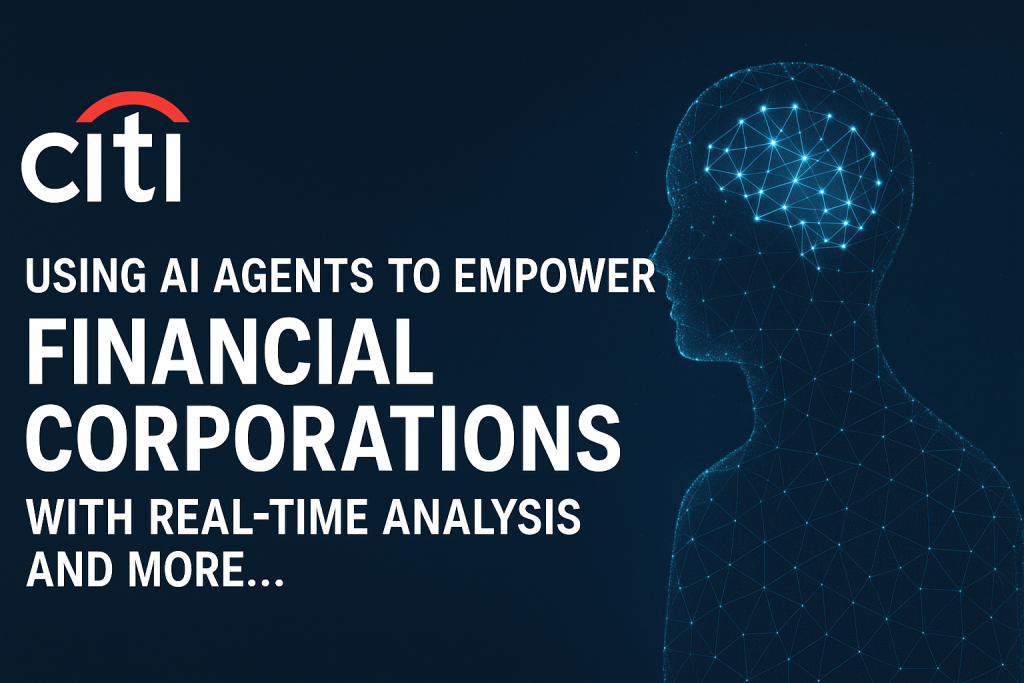In its latest ‘Agentic AI Finance & the ‘Do It For Me’ Economy’ report, Citibank explores a significant paradigm shift underway in financial services: the rise of agentic AI. Unlike conventional AI systems that rely on prompts or rule-based instructions, agentic AI possesses autonomy—acting proactively, making decisions, and executing multi-step workflows without direct human intervention. As the industry enters what Citibank calls the “Do It For Me” (DIFM) economy, these intelligent agents could redefine every facet of finance—from compliance and risk modeling to personalized advisory services.
A New Operating System for Finance
Agentic AI is more than an evolution of generative models; it’s an architectural overhaul. While generative AI creates content, agentic AI initiates and manages actions. Citibank positions this transformation as analogous to the shift from static websites to dynamic, cloud-native applications—except this time, it’s workflows that are becoming intelligent and adaptive.
With advances in contextual memory, planning, and multi-agent coordination, banks now have the technical capability to deploy autonomous systems that not only respond, but anticipate. These agents will increasingly inhabit every layer of financial operations—from client-facing digital advisors to internal compliance monitors.
Multi-Domain Applications Across Financial Services
The report outlines a detailed matrix of use cases across banking verticals:
- Retail & Wealth Management: AI agents deliver adaptive financial advice, dynamically rebalance portfolios, and automate retirement planning based on real-time economic signals and user behavior.
- Corporate Banking: Agents handle complex reconciliations, optimize loan structures, and detect anomalies in trade and payment data.
- Insurance: Autonomous systems underwrite policies based on real-time behavioral and environmental inputs, while automating claims assessments with contextual risk modeling.
- Investment Operations: Research synthesis, market surveillance, and portfolio hedging are increasingly offloaded to agents equipped with domain-specific large language models.
In every domain, agentic AI extends beyond efficiency—it creates new capabilities. For example, fraud detection systems can now leverage contextual inference rather than pattern-matching alone, significantly reducing false positives and detection latency.
A New Human-AI Collaboration Model
Citibank envisions a future where AI agents become digital colleagues—integrated into teams rather than siloed systems. These agents can handle repetitive, time-intensive tasks, freeing up human professionals to focus on higher-order reasoning and relationship management.
However, this shift introduces new operational paradigms. IT departments will evolve to manage fleets of agents, ensuring that each one is properly configured, continuously monitored, and aligned with both policy and regulatory constraints. The role of compliance officers will expand from policy enforcement to supervising autonomous systems capable of interpreting and applying those policies in real time.
Governance, Risk, and the Path to Production
Despite the enthusiasm, Citibank’s report does not understate the risks. Agentic AI introduces new governance challenges: Who is accountable when an autonomous agent makes a critical error? How should decisions made by AI be audited and contested?
The report emphasizes the necessity of human-in-the-loop systems, real-time oversight mechanisms, and formal agent authentication layers. It also warns that the attack surface expands considerably when AI agents are allowed to make financial decisions, interact with APIs, or hold cryptographic keys.
Moreover, ethical considerations are paramount. AI agents must be transparent in how they reach decisions, especially in regulated contexts such as lending, underwriting, and portfolio management.
Looking Ahead
In its report/guide Citibank concludes that agentic AI will catalyze the next major transformation in finance—on par with the internet era. With nearly 37% of 2024’s VC funding directed toward AI startups and a 17x increase in BigTech references to “agentic AI,” momentum is clearly building.
However, wide-scale adoption will not be driven by novelty alone. It will depend on how effectively financial institutions can align these technologies with robust governance, operational readiness, and a deeper understanding of where autonomous systems can—and should—take the lead.
As 2025 unfolds, agentic AI is no longer a concept confined to research labs. It is already shaping how financial institutions model risk, interact with clients, and build the next generation of intelligent infrastructure.
Check out the Full Report. Also, don’t forget to follow us on Twitter and join our Telegram Channel and LinkedIn Group. Don’t Forget to join our 90k+ ML SubReddit.
Sana Hassan, a consulting intern at Marktechpost and dual-degree student at IIT Madras, is passionate about applying technology and AI to address real-world challenges. With a keen interest in solving practical problems, he brings a fresh perspective to the intersection of AI and real-life solutions.


